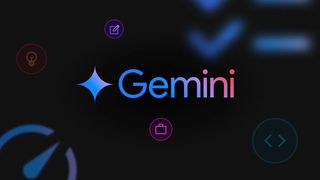Apple is about to launch the brand new iPhone 16 at its “Glowtime” event on September 9, and it’s made me wonder what it could do to win me back. When the Google Pixel 9 range came out I switched to a Google Pixel 9 Pro. Having been an iPhone user all my life I was nervous about dipping my toes in the Android waters, but I can report that the temperature is lovely, come on in! Full disclaimer: my previous iPhone was pretty old, so it was long overdue an upgrade, meaning that the bar was set very low, but thankfully the Pixel 9 Pro easily cleared it, and then some.
To be honest, after reading our Pixel 9 Pro review, I was just curious to find out what a Google Pixel phone would be like, and it became readily apparent that for everyday use, there’s very little that separates a Google Pixel 9 from a new iPhone. Sure, they use different hardware, the haptic feedback is slightly different, and have different camera specs, but for everyday use, it’s the experience of using the phone that matters most. Once you understand that you’re using the Play Store to download apps, not the App Store, life kind of carries on as normal for an ex-iPhone user. Pixel phones have face recognition for unlocking the phone, so there’s no change there for an iPhone user, but they also fingerprint recognition when it needs more security for payments.
All the apps I used on my iPhone, like Facebook, Threads, X, Instagram, Slack, Gmail, YouTube, etc, are available on the Pixel 9 Pro, and they all work in exactly the same way. The basic gestures for using the phone are similar enough, and my AirPods Pro work with an Android phone just fine. I can even keep my Apple Music subscription and Google Pay works just like Apple Pay in shops. Even my banking apps look and feel the same.

Apple Intelligence vs Gemini
There is one area where Google and Apple have the chance to differentiate themselves however, and that’s with artificial intelligence. Google has beaten Apple to the punch by getting its AI assistant, called Gemini, to market first, but at the moment I’d describe the Gemini execution as somewhat clunky.
You can tell your Pixel 9 to use Gemini instead of Google Assistant, but there are still some things that Gemini can’t do, so it pulls in help from Google Assistant anyway, and it sometimes feels like they’re fighting each other for ownership of the phone.
When I say “Hey Google, launch Gemini”, Google Assistant tells me it can’t find Gemini on the phone and then starts to tell me about the Project Gemini spaceflight missions! The only way to get to Gemini Live (the part where you talk to your phone and it talks back to you like a human) is by launching Gemini and then touching the Gemini Live button on the phone. It feels counterintuitive to have to touch the phone to get to the part where you talk to the phone… But the lack of deep integration goes further – you can’t start timers from inside Gemini Live right now, for instance, and a lot of the features that Google showed off at the launch event, like searching in your Gmail inbox using Gemini Live, require extensions that haven’t launched yet. Basically, a lot of Gemini Live is ‘coming soon’. Plus, you have to pay for it. You get a year’s free trial with a new Pixel 9 phone, but after the year is up it’s going to cost you $20 a month (£18.99, AU$30) to be a Gemini Advanced subscriber via a Google One AI Premium Plan, which does come with some nice extras, like 2TB of storage space.
So, it looks like Apple has a chance to use Apple Intelligence to better Gemini when it launches the iPhone 16 range. Unfortunately, it’s not like Apple is about to knock Gemini out of the park with Apple Intelligence. At launch, it’s looking like the iPhone 16 lineup, which comes with iOS 18, won’t have any Apple Intelligence features at all. We have to wait for them to arrive in iOS 18.1 when it launches in October (hopefully), then we have to wait until early 2025 for the full Siri 2.0 experience.
It used to be the case that I’d compare phones in two ways, firstly on specs like processor, memory, and camera, but then consider the operating system and apps, and how they would fit in with my current workflow. These days I’m finding the line between iOS and Android operating systems has blurred enough that they feel interchangeable, so now it’s down to who nails AI. There is one exception to the spec comparison though, and that’s RAM. RAM is integral to how well AI performs on a smartphone, so I’ll be interested to see how much RAM Apple packs into the iPhone 16 range on September 9, and then we’ll know if Apple can win me back.
You might also like
Services Marketplace – Listings, Bookings & Reviews